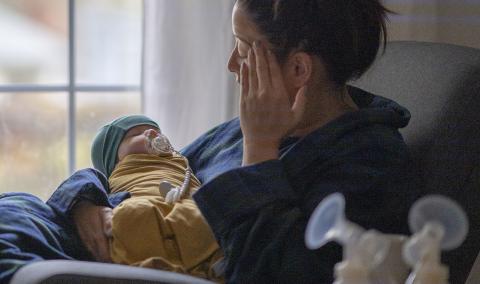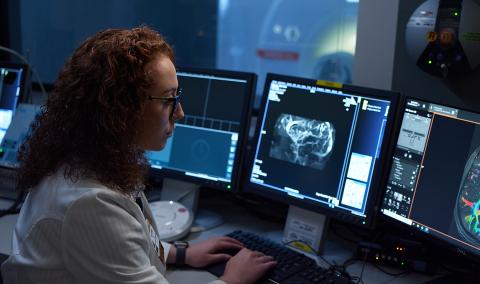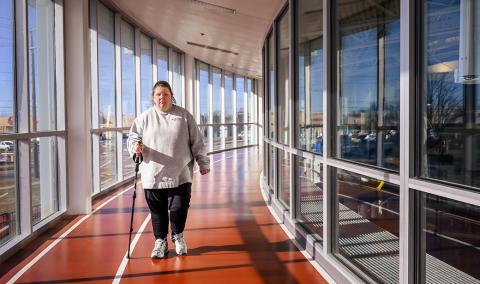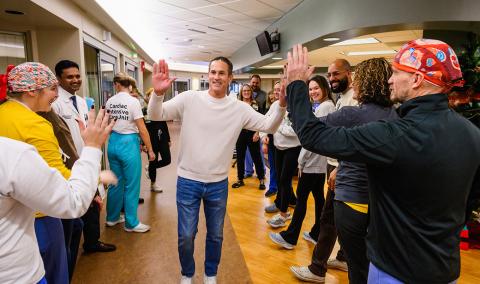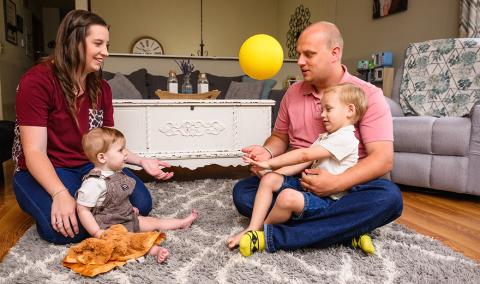Millions of Americans suffer from hernias each year. If you are diagnosed with a hernia, the surgeons at University of Missouri Health Care are highly trained in advanced, minimally invasive hernia surgery to help you get back to your everyday activities as quickly and safely as possible.
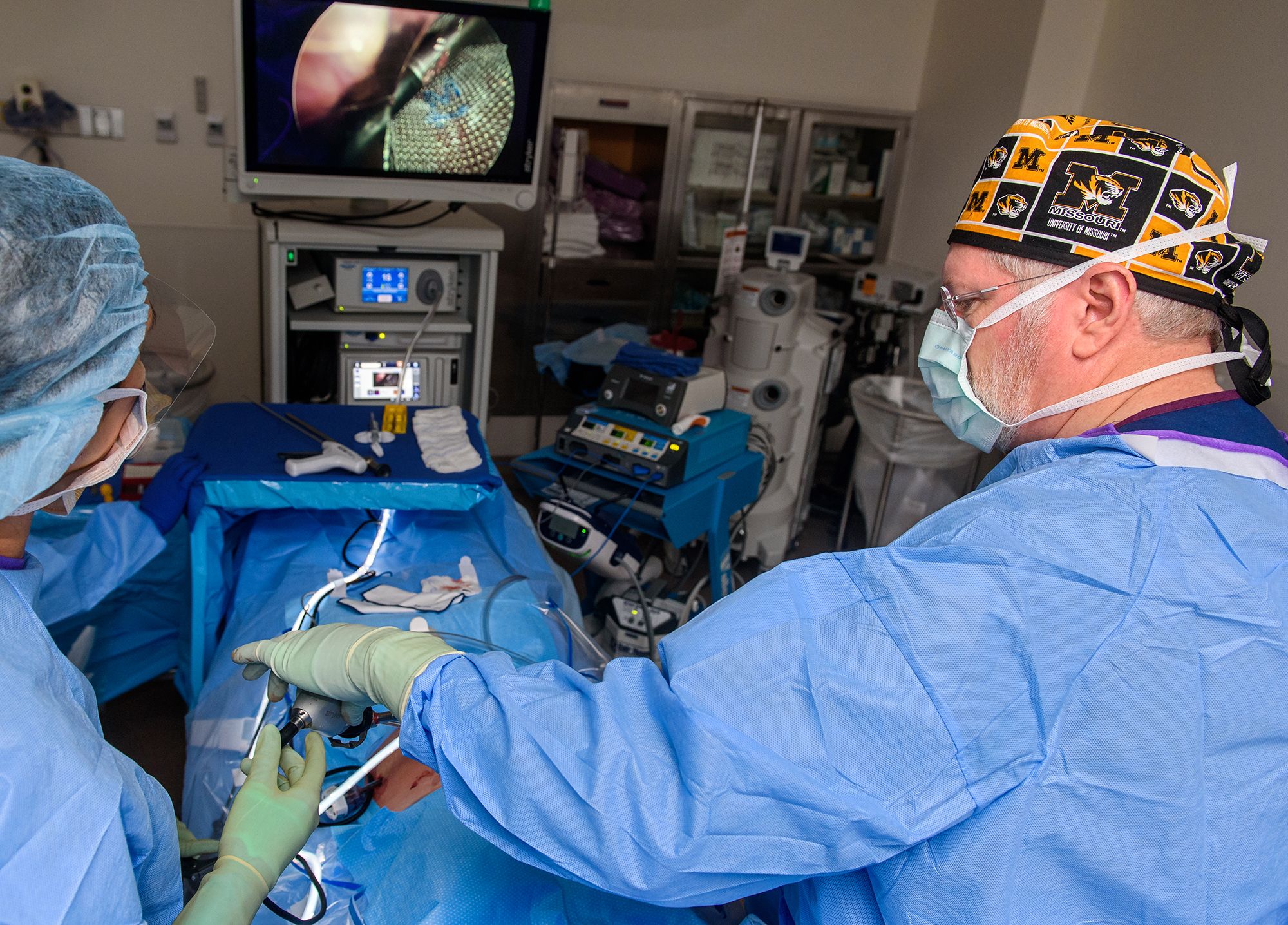
At MU Health Care, we offer a full range of hernia repairs that are tailored to your needs. Hernia repair is not a "one size fits all" procedure. That’s why we specialize in both open and minimally invasive techniques so we can adapt the repair to the specific hernia you have and the desired outcomes you want.
Not everyone is ready for a hernia repair right away. We will work with you if you have certain medical conditions that need to be under control before you can undergo surgery for hernia repair, such as a heart condition.
What is a hernia?
A hernia occurs when an organ or bodily tissue protrudes through muscles that keep the organs in place.
We can diagnose a hernia using:
- Physical Exam
- Computed tomography (CT) scans
- Magnetic resonance imaging (MRI)
- Ultrasound
Hernias we treat
At MU Health Care, we treat all types of hernias, including:
- Congenital diaphragmatic hernia. A birth defect that occurs when the organs in the abdomen are pushed up into the chest cavity.
- Paraesophageal hernia also known as a Hiatal hernia. When the stomach pushes through the diaphragm.
- Inguinal hernia. When part of the intestine or other tissue pushes through a weak spot in the lower abdominal wall.
- Parastomal hernia. When a portion of the bowel or other tissue sticks out or swells near the site of a stoma. A stoma is a surgically created opening on the abdomen that moves urine or feces to an external pouch (such as a colostomy or ileostomy).
- Sports hernia. Pain in the groin area that results from an athletic-related injury.
- Recurrent hernia. A hernia that returns even after it’s repaired.
- Umbilical hernia. When a portion of the intestine or other tissue bulges through the belly button.
- Incisional hernia. When tissues bulge through a weakened area of the abdominal wall muscles where you had a previous hernia.
- Ventral hernia and Lumbar hernia. Ventral hernias refer to your front and lumbar refers to your back. There are several reasons you can have a hernia in these locations.
Benefits of minimally invasive hernia surgery
At MU Health, we are able to repair many hernias laparoscopically, which is a minimally invasive surgical procedure. During laparoscopic hernia surgery, the surgeon makes a small incision and then uses a slender tube with a video camera at the end to guide the surgery, making repairs with small tools.
Minimally invasive hernia surgery has several major benefits, including:
- Decreased post-surgery discomfort
- Reduced risk of infection
- Reduced risk of hernia recurrence
When it comes to successful hernia repairs, there’s no substitute for the experienced surgeons at MU Health Care.













